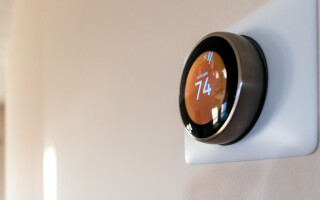Take Your Elevator and Escalator Designs to the Next Level - Blog
March 05, 2024New technology is showing up everywhere, including in the elevators and escalators that all of us use to reach the floors of commercial buildings, shopping malls, apartment complexes, and condominiums. Nearly 20 million elevators and escalators are operating worldwide, and the number of installations is growing substantially. In 2021, new installations exceeded a quantity of one million units. Market drivers include the growth in cities' population, which requires more apartment buildings and office buildings. Other drivers include adding intelligent sensing and wireless connectivity to reduce unplanned downtime and increase user convenience.
Play It Safe! Intelligent Design Tips for Smart Home Locks and Access Controls - Blog
December 21, 2022The rapid development of smart homes and advanced building automation is enabled by a combination of smartphone, networking, and internet-of-things (IoT) technologies. These technologies provide increased security, automation, and control that gives homeowners and office occupants enhanced convenience, comfort, and greater safety. Wherever a homeowner or office occupant is, they can easily view the status of their door locks and window and door access.
Smart Water Heater Design: Three Important Technologies You Shouldn’t Forget to Use - Blog
November 21, 2022This article provides designers with information on three critical technologies: protection, control, and sensing, for developing an electric water heater robust to external overloads, transients, and ESD. The components representing these technologies will help create a safe, efficient, long-life water heater that safely controls water temperature. By using the recommended components, design engineers will achieve the goal of developing high-quality, reliable, smart water heaters.
How to Improve Reliability and Efficiency of Smart Thermostats - Story
October 21, 2022Smart thermostats have become a popular method of energy conservation for homes, office buildings, and retail facilities. The market for smart thermostats has been growing at a high CAGR of 22% since 2018. With such high growth, manufacturers can easily justify innovation in new models. Future smart thermostats will provide a wide range of information, including energy usage audits and comparative data on energy consumption before and after an HVAC system upgrade.
Design Reliability and Efficiency into Smart HVAC Systems - Blog
July 25, 2022The heating, ventilating, and air conditioning (HVAC) market is growing at a 6% compound annual growth rate as annual shipments of AC systems are expected to grow from 110 million units in 2020 to 140 million units in 2024.1 Large commercial systems will have the highest growth rate resulting from the construction of new healthcare, education, warehouse, government office, and retail facilities.
How to Make Your Heat Pump Designs More Reliable, Safer, and with Higher Efficiency - Blog
June 27, 2022Heat pumps perform both heating and air conditioning and are all-electric systems. Unlike a fossil fuel heating system, heat pumps do not convert combustible fuel into heat energy. Thus, heat pumps are another tool in the global effort to reduce carbon dioxide emissions and minimize the potentially catastrophic effects of climate change on the planet. Over 80 countries have endorsed the Net-Zero Emissions (NZE) initiative, which requires a 50% reduction in greenhouse gas emissions by 2030 and net-zero emissions by 2050.







